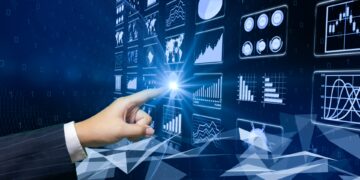
AI-Powered Translation: Breaking Down Language Barriers in a Globalized America
AI-powered translation technologies are revolutionizing communication in a diverse America. By providing nuanced, real-time translations, these tools enhance business operations, promote cultural understanding, and foster inclusivity. Their scalability and cost-effectiveness empower organizations to engage effectively with varied populations, ultimately breaking down language barriers and strengthening connections.

Diversity in the Workplace: Beyond Representation to Authentic Inclusion
The article explores the evolution towards authentic inclusion in diverse workplaces, emphasizing the importance of culture, equitable policies, and leadership commitment. It highlights strategies for fostering inclusivity, the significance of robust metrics for measuring success, and the ongoing journey required to ensure all employees feel valued and engaged.

The Future of Transportation: Electric Vehicles and Infrastructure Challenges
The rise of electric vehicles offers a sustainable transportation solution, yet significant infrastructure challenges remain. Addressing the need for widespread charging stations, integrating renewable energy, and implementing supportive policies will be essential for fostering EV adoption, reducing carbon footprints, and ensuring a cleaner, more efficient future for urban mobility.

Technology Equity: Bridging the Digital Divide in Rural America
This article examines the significant barriers rural communities in America face regarding technology access, emphasizing the detrimental effects on education, employment, and healthcare. It highlights potential solutions, including improved internet connectivity, affordable technology options, and enhanced digital literacy programs, promoting a vision for a more equitable digital landscape.
The Rise of Side Hustles: Navigating Identity and Economic Necessity
In response to economic pressures, individuals increasingly pursue side hustles for extra income and personal fulfillment. This shift reshapes identity and work perceptions, blending traditional employment with passion projects. Technological advancements and changing cultural values further support this trend, fostering a flexible and balanced approach to modern work life.
The Remote Work Revolution: How Technology Is Reshaping Work-Life Balance
The rise of remote work, fueled by technological advancements, transforms work-life balance by enhancing flexibility and job satisfaction. However, challenges like isolation and blurred boundaries persist. Organizations must focus on effective communication, well-being initiatives, and structured environments to create a sustainable and productive remote work culture.

Cyber Threats: Protecting National Security in an Increasingly Digital World
The article discusses the rising sophistication of cyber threats in the digital landscape and their severe implications for national security. It emphasizes the need for robust cybersecurity frameworks, public-private partnerships, and continuous workforce training to effectively address these challenges and protect critical infrastructure and sensitive data.

Technology Equity: Bridging the Digital Divide in Rural America
Rural communities in the U.S. face significant challenges due to the digital divide, impacting economic growth, education, and healthcare access. To bridge this gap, a comprehensive approach involving infrastructure investment, digital literacy programs, and collaborative partnerships is essential, ensuring equitable technology access for all residents.

Technology and Mental Health: Addressing the Psychological Effects of Screen Time
This article explores the complex relationship between technology and mental health, highlighting the adverse effects of excessive screen time, such as anxiety, depression, and social isolation. It also discusses the potential of digital tools for mental wellness, emphasizing the importance of mindful tech use for better psychological resilience.

The Impact of Artificial Intelligence on Job Security in the U.S. Workforce
The article examines how Artificial Intelligence is transforming the U.S. workforce by creating both job displacement and new job opportunities. It emphasizes the importance of reskilling and lifelong learning to adapt to evolving demands, urging collaboration among stakeholders to ensure a resilient workforce amid technological changes.